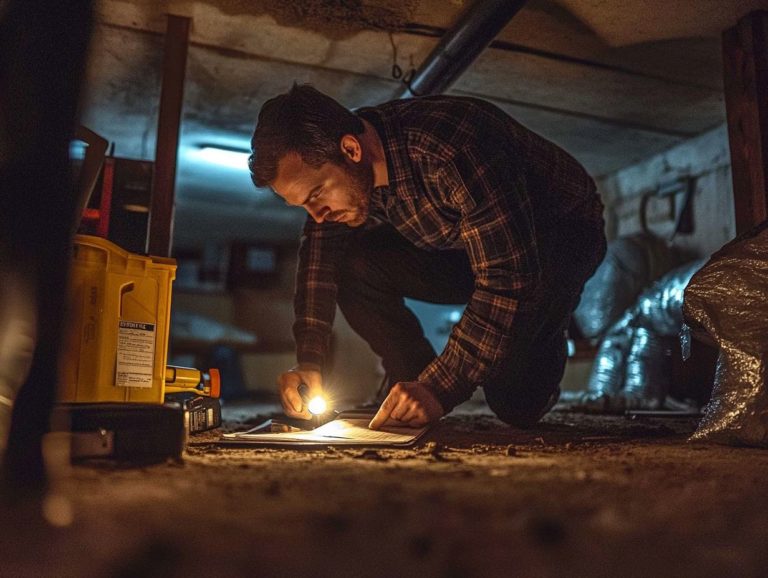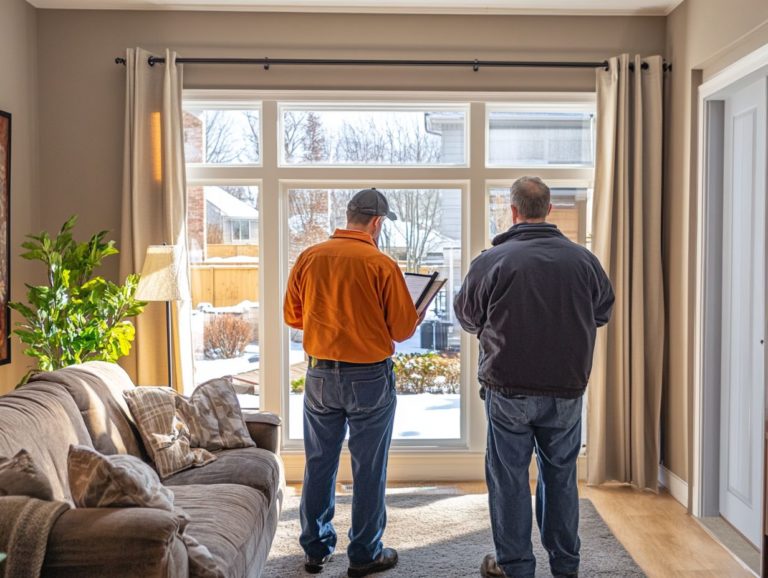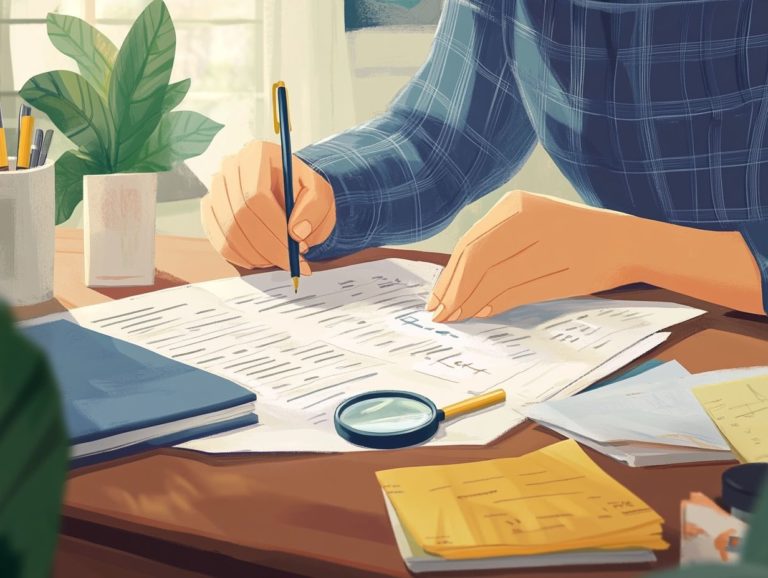How to Communicate Your Needs to Inspectors
Navigating an inspection may seem overwhelming, yet understanding the role of inspectors and mastering effective communication is crucial for a seamless process.
This article explores the fundamental responsibilities of inspectors, the importance of clear communication, and strategies for preparing yourself and your property.
Whether you face challenges during the inspection or need to follow up afterward, this guide provides you with strategies to express your needs and address any concerns.
Discover how proactive communication can transform your inspection experience into a more positive one.
Contents
- Key Takeaways:
- Understanding the Role of Inspectors
- Why It’s Important to Communicate Your Needs
- Preparing for the Inspection
- Communicating Your Needs During the Inspection
- Handling Difficult Situations
- Following Up After the Inspection
- Frequently Asked Questions
- 1. How can I effectively communicate my needs to inspectors?
- 2. Are there any specific communication techniques that can help me effectively communicate with inspectors?
- 3. What should I do if I am having trouble communicating my needs to inspectors?
- 4. Is it important to document my communication with inspectors?
- 5. How can I ensure that my needs are being heard and understood by inspectors?
- 6. Is it appropriate to express my concerns or disagreements to inspectors?
Key Takeaways:
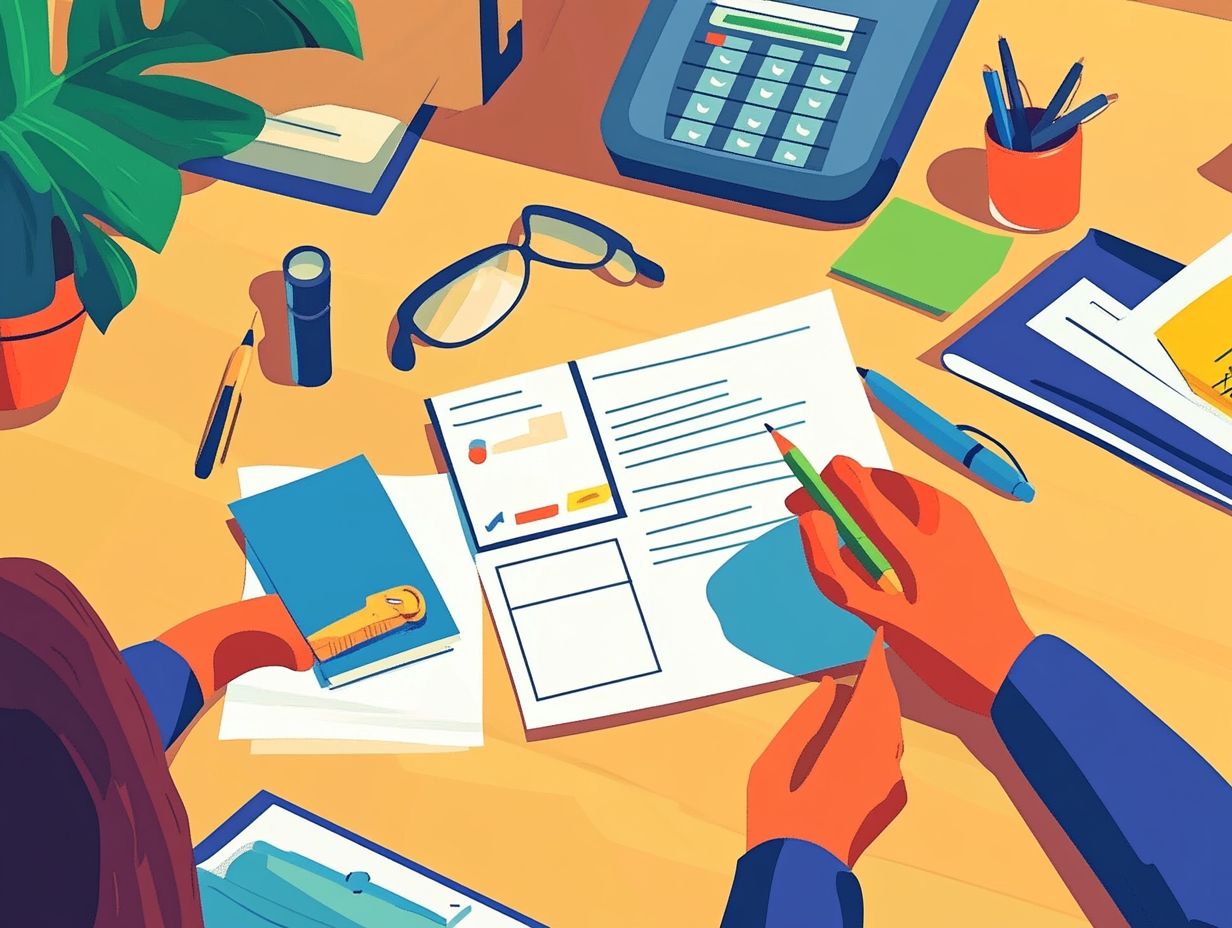
Understand the role of inspectors to effectively communicate your needs during inspections.
Clear communication with inspectors can lead to a smoother and more beneficial inspection process.
Prepare necessary documents and articulate your needs effectively during the inspection to avoid issues or conflicts.
Understanding the Role of Inspectors
The role of inspectors is crucial for keeping safety and compliance in check across various sectors, especially in food processing.
Facility managers rely heavily on their expertise to ensure adherence to building codes, which are rules that ensure buildings are safe and up to standard.
These inspectors act as authoritative figures, conducting thorough checks and offering valuable insights that help mitigate risks associated with health and safety violations.
Their presence not only alleviates concerns about compliance issues but also fosters a proactive environment, promoting a culture of safety within organizations.
What Do Inspectors Do?
Inspectors hold the important responsibility of evaluating a property s condition to ensure it meets established building codes and safety regulations key components for successful construction projects.
Their role goes beyond simple observation; it involves conducting thorough checks at various stages of the project to identify discrepancies or potential hazards.
You’ll notice that they meticulously take detailed notes during these evaluations, which serve as essential documentation.
From these notes, they generate inspection reports that outline findings, recommendations, and necessary corrective actions, facilitating effective communication with construction managers.
By undertaking these tasks, they play a vital role in maintaining quality control, ensuring adherence to safety standards, and ultimately contributing to the successful completion of construction projects.
Why It’s Important to Communicate Your Needs
Effective communication can make all the difference! It allows you to clearly articulate your needs, fostering mutual understanding that greatly enhances the inspection process.
This clarity streamlines interactions and builds positive rapport between facility managers and inspectors, setting the stage for successful outcomes.
Benefits of Clear Communication
Clear communication is the cornerstone of safety, consistency, and a proactive experience that benefits everyone involved in the inspection process.
In the inspection industry, where precision and compliance are vital, effective communication ensures that you re aligned with your team and fully aware of your roles and responsibilities.
When you and your fellow inspectors share potential hazards or discrepancies in real time, it allows for swift adjustments to safety protocols, ultimately minimizing risks on-site.
Encouraging open dialogue fosters proactive problem-solving, empowering you and your colleagues to share insights and tackle issues before they escalate.
This collaborative environment enhances knowledge sharing and elevates the overall quality of the inspection, ensuring compliance standards are met consistently and efficiently.
Preparing for the Inspection
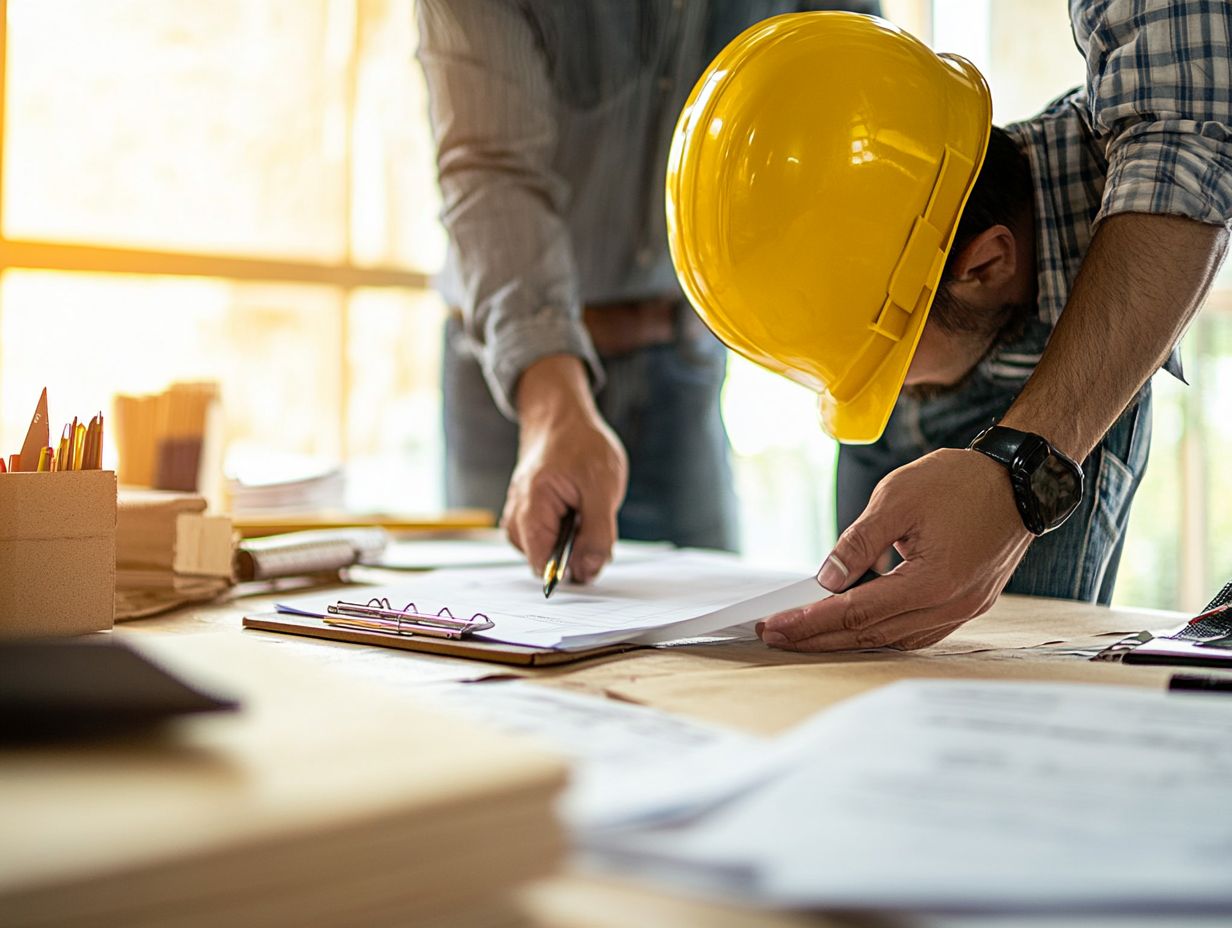
Preparing for an inspection requires a clear understanding of the process and awareness of potential areas of concern that may arise during the assessment.
Ensure that all necessary documentation and details are readily available for review, allowing for a smooth and efficient evaluation.
Don t miss out on the chance to clarify your needs before the inspection!
What to Have Ready
Having the right documentation at your fingertips like clear notes and previous inspection reports is essential for you as a facility manager to ensure compliance with building codes during inspections.
Along with these critical documents, it s beneficial for you to prepare materials such as maintenance logs and safety data sheets.
This collection showcases your commitment to following regulations. It also reflects a proactive approach to identifying and addressing potential issues.
You should prioritize the habit of maintaining meticulous records. This practice supports clear communication during inspections and allows for a thorough review of any persistent problems.
By revisiting past reports, you can effectively track resolution progress and ensure that no outstanding concerns slip through the cracks.
Being well-prepared instills confidence in you and fosters a smoother inspection process.
Communicating Your Needs During the Inspection
Communicating your needs during an inspection is essential for fostering a positive rapport with inspectors, including understanding how to communicate with your inspector.
By articulating your requests clearly, you ensure that they are understood. This allows for any concerns to be addressed effectively.
Tips for Effective Communication
Effective communication with inspectors hinges on your ability to clearly articulate concerns and actively listen. This approach builds strong relationships and boosts collaboration.
To elevate this dialogue, approach interactions with an open mind. Allow inspectors to share their insights fully.
Practicing active listening is essential; it conveys respect and helps the inspector feel valued.
As you formulate thoughtful questions, you can delve deeper into conversations and clarify policies or procedures.
Summarizing what the inspector has conveyed can confirm your understanding. By being mindful of your body language and maintaining a positive tone, you can cultivate an engaging environment that promotes effective communication.
Handling Difficult Situations
Navigating challenging situations during inspections, like disagreements or discrepancies, demands a composed approach. This helps alleviate fear and ensures that safety regulations are upheld.
Dealing with Disagreements or Discrepancies

When you encounter disagreements or discrepancies during an inspection, employing active listening and fostering mutual understanding can pave the way for effective resolution.
By prioritizing clear communication, you create a collaborative atmosphere that encourages everyone to express their views openly.
This approach addresses immediate concerns while building the trust and rapport essential for maintaining professional relationships.
Utilizing problem-solving techniques, such as brainstorming options together, allows both you and your clients to identify common ground. This ultimately enhances the inspection process.
Acknowledging emotions and clarifying misunderstandings can further mitigate conflict. This highlights the importance of professionalism in navigating challenging situations.
Following Up After the Inspection
Don’t wait! Following up after an inspection is crucial for addressing any concerns noted in the inspection report.
This ensures that all necessary actions are taken to meet the standards of quality developments.
By prioritizing this process, you demonstrate your commitment to excellence and uphold the integrity of your projects.
Try these tips at your next inspection to see the difference they can make!
Addressing Any Concerns or Issues
Addressing concerns raised during the inspection is vital for compliance and certification. It also nurtures a positive relationship with inspectors.
To tackle these concerns, begin by reviewing the notes taken during the inspection. This ensures you understand and prioritize every point raised.
Once you grasp the specifics, collaborating with inspectors is crucial. Engage them in open dialogue to gain clarity and foster a constructive environment.
Develop an action plan to address each concern. This helps track progress and demonstrates your commitment. Regular updates to inspectors and stakeholders reinforce your dedication to compliance and enhance trust.
Frequently Asked Questions
1. How can I effectively communicate my needs to inspectors?
To communicate your needs to inspectors, be clear, concise, and specific. Providing relevant information and using professional language is crucial. For more tips on effective communication, check out how to communicate with your home inspector. Establish good rapport and actively listen to their feedback.
2. Are there any specific communication techniques that can help me effectively communicate with inspectors?
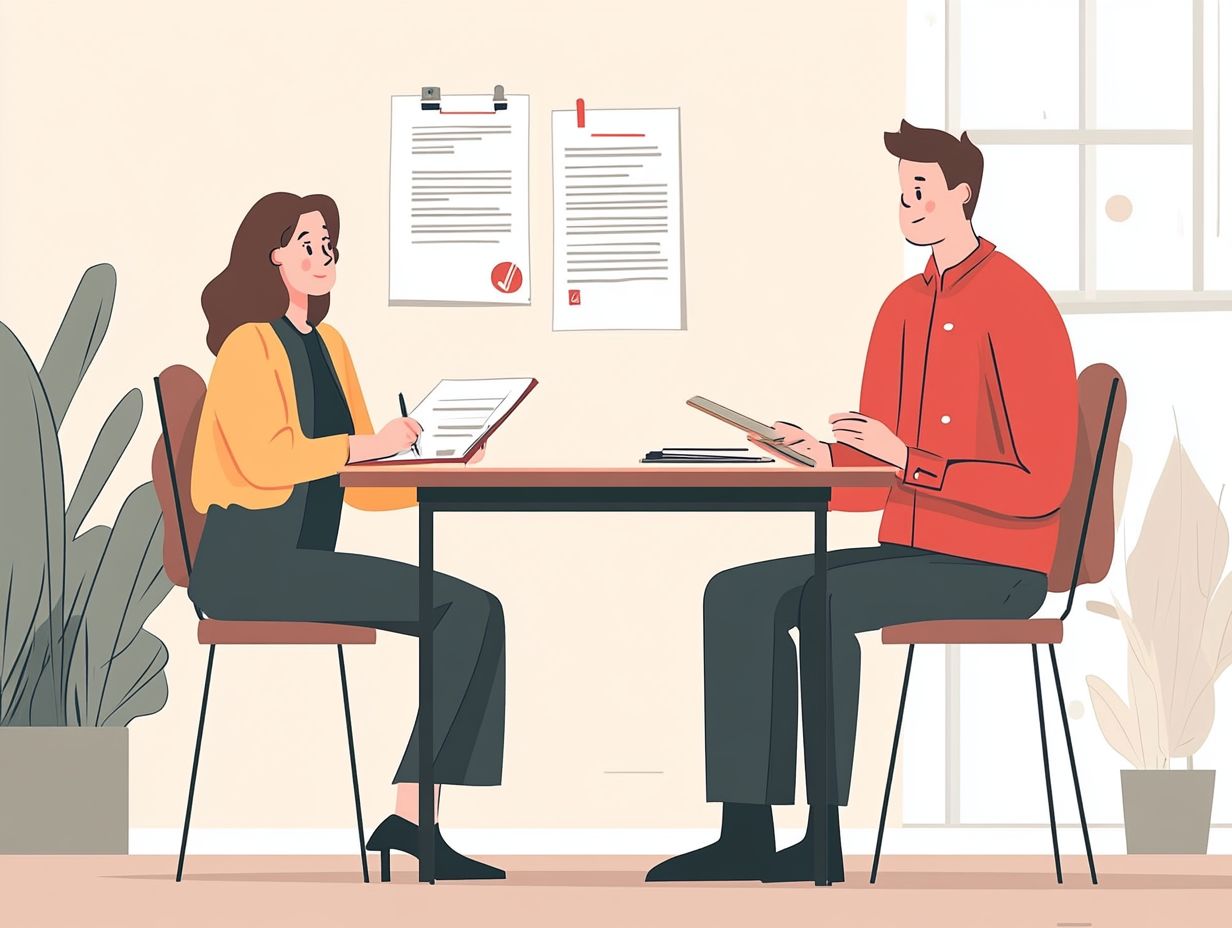
Yes, techniques like active listening, open-ended questions, summarizing information, and assertive communication can help. Maintain a calm demeanor throughout the process.
3. What should I do if I am having trouble communicating my needs to inspectors?
If you’re struggling, seek assistance from a colleague or supervisor for guidance. You can also ask the inspector for clarification if you’re having trouble understanding their requests.
4. Is it important to document my communication with inspectors?
Yes, keep a record of your conversations with inspectors. This helps prevent misunderstandings and provides evidence in case of disputes.
5. How can I ensure that my needs are being heard and understood by inspectors?
To ensure your needs are understood, actively listen to their feedback. Ask for confirmation to make sure your needs are communicated accurately.
6. Is it appropriate to express my concerns or disagreements to inspectors?
Yes, express your concerns respectfully. Communicating your needs and any issues can prevent misunderstandings and promote collaboration.

